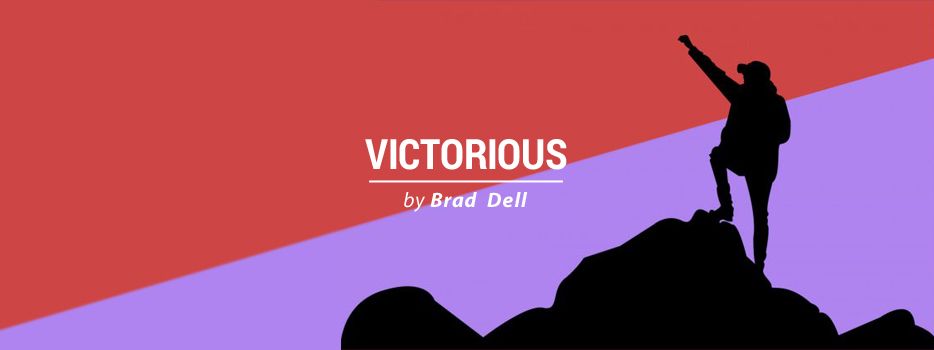What Will You Do to Ensure Others Aren’t Excluded?
Written by |

I’ve often written that “the disease itself isn’t the worst part, rather it’s the …” The medication side effects, the childhood trauma, the dread, the blah, blah, blah.
Today, it’s the social exclusion.
Post-transplant, I’m not very excluded. Sure, I can’t eat sushi with my friends, and most can’t really empathize with what it’s like to have gone through what I’ve gone through. But these days, I’ve got tall energy levels, and I’m freed from hospitalizations and hours of breathing treatments.
Sometimes I realize that I’ve been taking that for granted. Usually that’s when I’m looking at old pictures of feeble me, or when people share memories of conversations without remembering I was deaf at the time and haven’t the faintest clue what they’re talking about.
Last week, the realization came about when my friend shared that he was unable to go to his best friend’s bachelor party because my friend uses a wheelchair, and the bachelor’s cohort was going skiing. Regardless, catching COVID-19 would be especially tough on my friend, and he couldn’t take the risk. My heart broke when reading his messages.
Should the bachelor have chosen different plans? Not necessarily — it’s his day after all. But does that mean the situation stings any less? No. Yet the world doesn’t need to halt its spin every time someone with a disease or disability is excluded. But it’s valid for us to feel the deep, deep hurt. This world isn’t fair, and that’s exactly why it’s heartbreaking.
I maintain my position that ableism doesn’t get much attention compared to other injustices. Much of the world knows about the plight of inaccessibility, but not as many stop to consider what it’s like when others imply we’re an inconvenience to plans or a societal burden. They don’t stop to wonder what it’s like to be left out of diversity decisions or to be unable to join friends for fun because all money pours into healthcare.
They don’t consider what it’s like to be told you’re a flake because you need to cancel plans due to fatigue, emotional hurt, or treatments. They don’t consider what it’s like to spend all of your vacation days on doctors’ appointments. They don’t consider how frustrating it is to be told your isolating, painful hospitalizations must’ve been “restful” while everyone else continued working.
Many people thought I was popular in high school, but I only ever felt alienated. I’d disappear for weeks at a time for hospitalizations and return to school only to find most of my friends had moved on. I was no longer in on the latest gossip or inside jokes, and some friends were frightened away upon realizing the severity of my disease.
I’d return, and despite my fatigue and the towers of makeup class work, I’d feel like I needed to prove myself to be a valuable, hilarious, fun friend. How else could I get people to stick with sick me?
A week ago, I discussed this with an old friend, and she recalled observing me wandering alone in the middle of our high school’s recess yard, looking lost. While sharing this memory, she started crying thanks to the new context. This friend has always been good to me, and she owes me nothing. But simply realizing I hadn’t gone unnoticed? Well, that made me cry, too.
I thought back to leaving a three-week hospitalization — one of my worst — and realizing I hadn’t been visited by a single friend aside from my pastor. I remembered crying at that realization, while climbing into my mom’s car to go home and repeat my process of reclaiming friendships.
I recalled being deaf, and friends assuring me they’d work hard to include me, only to forget me halfway through events. I recalled being told I’d been unfriended on social media because I was close to dying and that scared people. I recalled a friend telling me she was always afraid to visit me in the hospital because she didn’t know what to do.
I don’t blame any of my friends. We were all young, my situation was unrelatable for most people, and I rarely vocalized what I really needed. Plus, I so very often drove people away with my poor attitude.
I write this column to, finally, tell all what to do: Don’t do nothing.
Seize any opportunity you can to help people with diseases and disabilities feel known and included. Have a “makeup hangout” when they can’t be part of your plans. If they’re open to it, visit them in the hospital and simply watch TV together. Ask them how they’re doing and decipher their body language. Make sure they aren’t allowing people to walk all over them.
Stand up for them when there isn’t accessibility or when they’re exhausted with society’s insensitivity. Pursue friendships with the lonely. When the pandemic is over, don’t forget how awful it is to feel isolated — use that memory for empathy.
Exclusion hurts. Be a friend.
***
Note: Cystic Fibrosis News Today is strictly a news and information website about the disease. It does not provide medical advice, diagnosis, or treatment. This content is not intended to be a substitute for professional medical advice, diagnosis, or treatment. Always seek the advice of your physician or other qualified health provider with any questions you may have regarding a medical condition. Never disregard professional medical advice or delay in seeking it because of something you have read on this website. The opinions expressed in this column are not those of Cystic Fibrosis News Today, or its parent company, Bionews, and are intended to spark discussion about issues pertaining to cystic fibrosis.







Leave a comment
Fill in the required fields to post. Your email address will not be published.